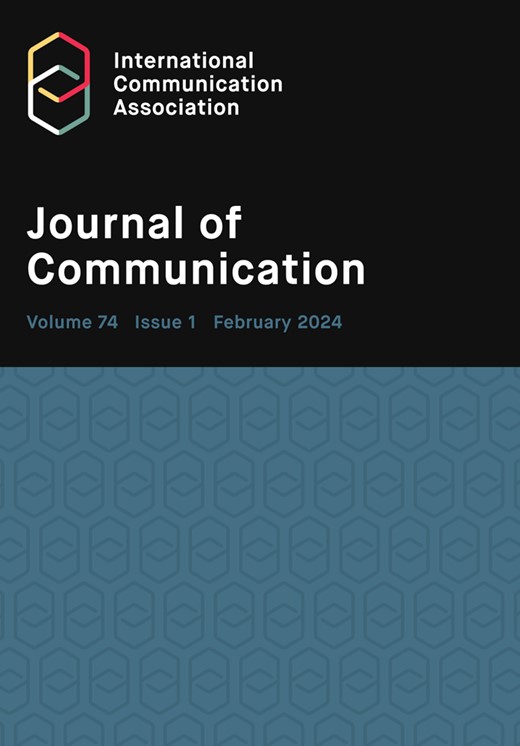The labor of love: romance authors and platform solidarity
IF 5.5
1区 文学
Q1 COMMUNICATION
引用次数: 0
Abstract
In recent years, emerging technologies and neoliberal policies have transformed the way people work. This article explores the impact of sociotechnical change on platformized cultural production, where creators depend on digital platforms to make a living. By examining the case of American romance writers, the paper reveals how unique solidaristic practices, including gender-focused community building, an emphasis on pan-hierarchical connections, and communicative norms of open information-sharing, empowered romance authors throughout the platformization of publishing. Through 57 in-depth interviews and 40 years of archival research, the study demonstrates how these practices facilitated the diffusion of digital self-publishing, reducing romance writers’ precarity. By introducing a novel, multi-level communicative framework, this paper integrates meso-level theories of innovation with macro- and micro-level understandings of platform power. This framework provides a new model for understanding collective agency within platformized industries The paper contributes to broader discussions of “good work,” suggesting that communicative strategies can reshape power imbalances even under platformized conditions.爱的劳动:浪漫与作家平台的团结
近年来,新兴技术和新自由主义政策改变了人们的工作方式。本文探讨了社会技术变革对平台化文化生产的影响,创作者依靠数字平台谋生。通过研究美国浪漫主义作家的案例,本文揭示了独特的团结主义实践,包括以性别为中心的社区建设,强调泛等级关系,以及开放信息共享的交流规范,如何在整个出版平台化中赋予浪漫主义作家权力。通过57次深度访谈和40年的档案研究,该研究证明了这些做法如何促进了数字自助出版的传播,减少了浪漫小说作家的不稳定性。通过引入一个新颖的多层次交流框架,本文将创新的中观理论与宏观和微观层面对平台权力的理解相结合。这一框架为理解平台化行业中的集体代理提供了一个新的模型。本文对“好工作”进行了更广泛的讨论,表明即使在平台化的条件下,沟通策略也可以重塑权力失衡。
本文章由计算机程序翻译,如有差异,请以英文原文为准。
求助全文
约1分钟内获得全文
求助全文
来源期刊

Journal of Communication
COMMUNICATION-
CiteScore
11.60
自引率
5.10%
发文量
41
期刊介绍:
The Journal of Communication, the flagship journal of the International Communication Association, is a vital publication for communication specialists and policymakers alike. Focusing on communication research, practice, policy, and theory, it delivers the latest and most significant findings in communication studies. The journal also includes an extensive book review section and symposia of selected studies on current issues. JoC publishes top-quality scholarship on all aspects of communication, with a particular interest in research that transcends disciplinary and sub-field boundaries.
 求助内容:
求助内容: 应助结果提醒方式:
应助结果提醒方式:


